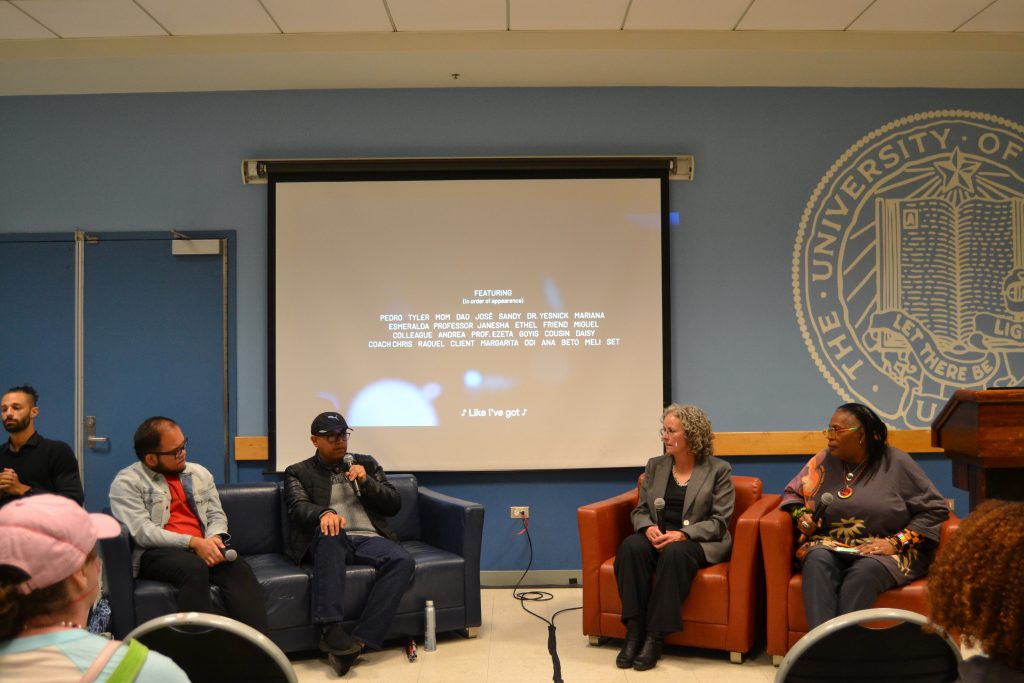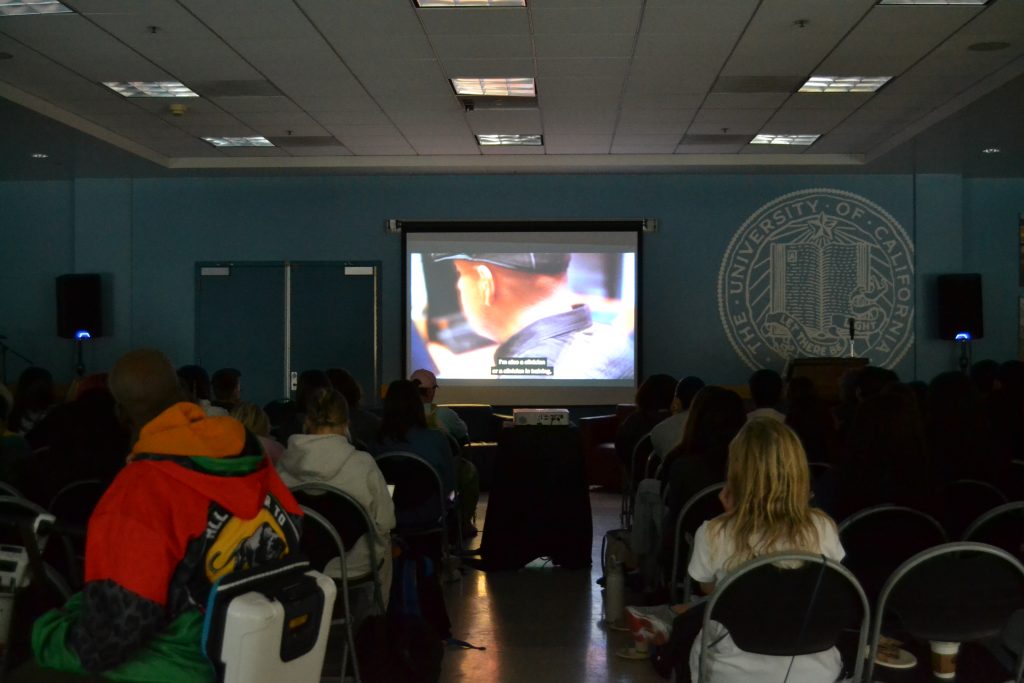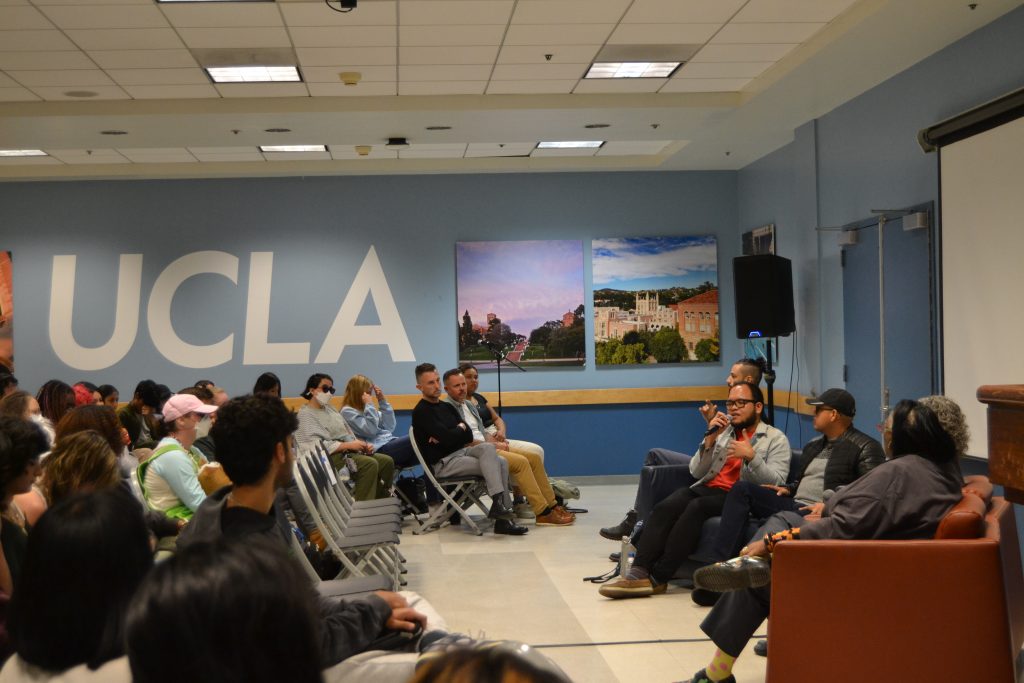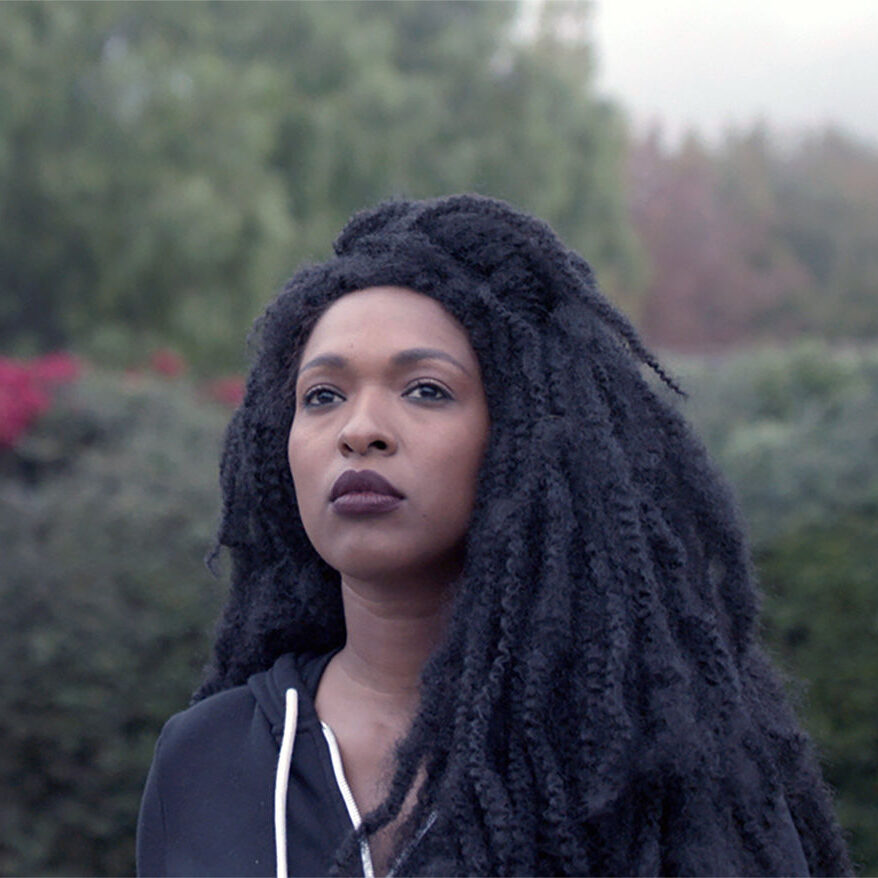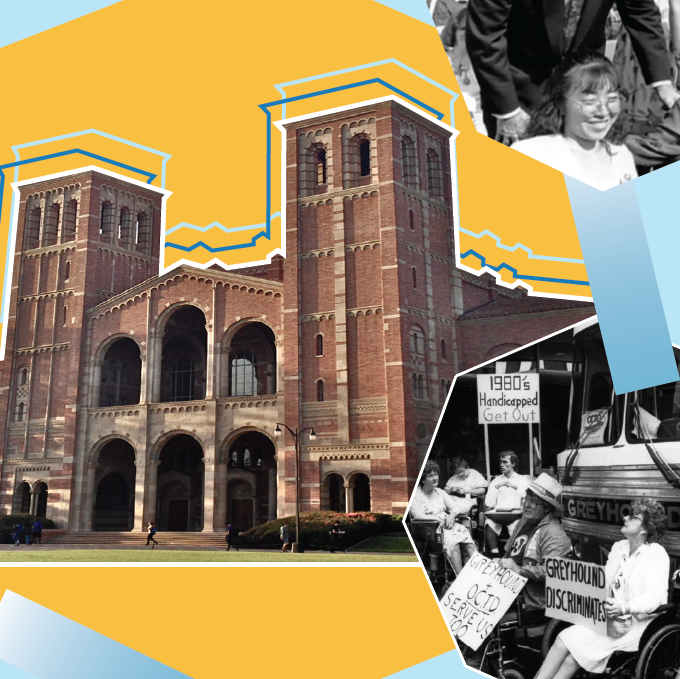On November 12, 2024, Dr. Lauren Clark and Keris Jän Myrick, hosted a screening of the film unseen as the culminating event concluding of their year-long partnership for the Heumann Community Partnerships Lab. Unseen follows the life of Pedro, an aspiring social worker who is blind and an undocumented immigrant. The film depicts his struggles with political restrictions on his college degree, securing a job as a healthcare provider, and supporting his family.
Dr. Clark and Myrick were joined by Set Hernandez, the film’s director, and Pedro, the film’s protagonist, for a discussion on the intersections between immigration, disability, and mental health. In a powerful show of vulnerability, Pedro shared with students that he often felt trapped in a birdcage, unable to escape the idea that he was an alien. Despite this, Pedro persevered with the support of his family, who believed in him even when he did not believe in himself. Set expanded on this by explaining that culture shapes the aspirations we can imagine for ourselves. In society, the message for undocumented individuals is that they must be hyper-excellent; mediocrity is not an option. Unseen challenges this narrative, declaring that individuals can be complicated, funny, coping with non-apparent struggles, and everything in between, and still be enough.
Attendees were impressed with the experimental cinematography and voiceovers showcased in the film. Some were particularly interested in the meaning behind the blurriness of the film. For Pedro, blurry parts of the film coincided with moments of uncertainty in his life, while moments of clarity on screen represented times when he felt grounded and present. Many attendees resonated with Pedro’s experience of imposter syndrome and the pressure of living up to high expectations. When asked for advice on overcoming imposter syndrome and the weight of family sacrifices, Pedro shared a lesson he learned from a recent fight with his mother. He explained that a significant weight was lifted from his shoulders when he stopped viewing his mother’s actions as sacrifices and started seeing them as acts of love. According to Pedro, his mother shared that what he calls sacrifices is to her purpose and her way of expressing her love for him. Understanding his mother’s point of view helped him see through his imposter syndrome and unload the burden of “sacrifice” and finding more room to breathe.
As the new administrative assistant at Undergraduate Education Initiatives, I supported this event’s planning efforts, and it was exciting to see how authentically the audience engaged with Set and Pedro. As with many students, Pedro’s experiences resonated deeply with me, and it was both comforting and inspiring to see Pedro’s complex, intersectional story captured in film. When asked how the community can protect Pedro, his family, and the disability community at large, Set encouraged thinking about Mia Mingus’s concept of Care Pods. By making our spheres of influence the starting point for safety and community, we can create a radiating effect where one pod inspires another to engage in the same work. Set also shared a wise quote by visual artist and activist Lilla Watson: “If you came here to save me, you’re wasting your time. But if you came here because your liberation is tied to mine, then let’s work together.”

